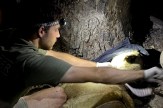How are students coping with the stress of COVID-19?
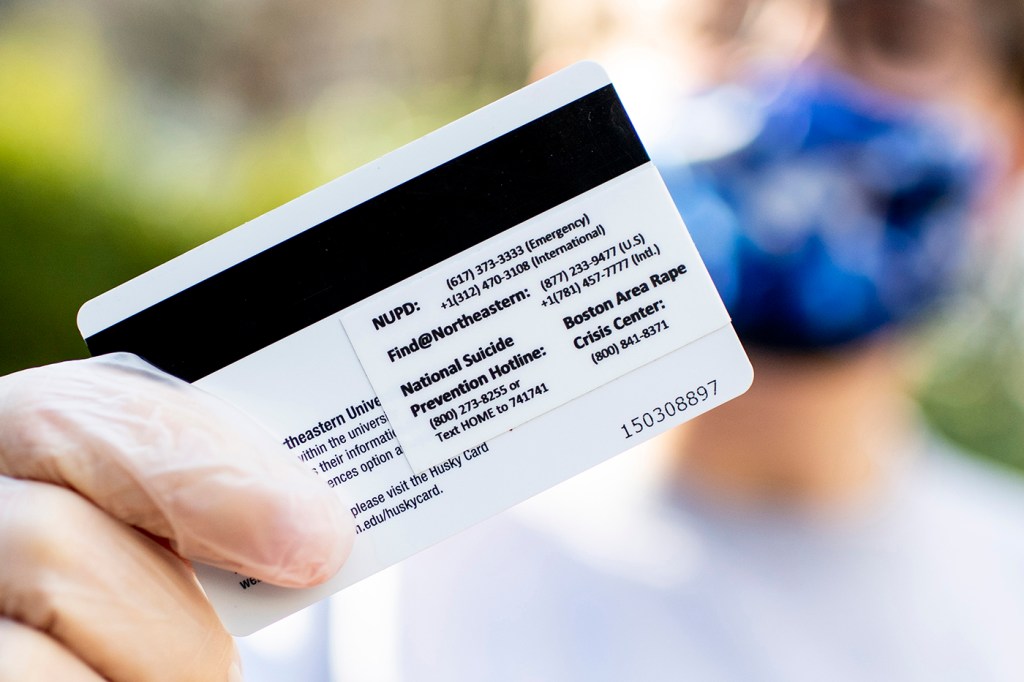
Elizabeth Fullwood remembers days when she struggled to get out of bed. Her coursework, her friends, all of it felt inconsequential. Meaningless. Empty.
She’d moved to Boston from Texas to start her second year of behavioral neuroscience studies at Northeastern. As part of a mandatory quarantine, she had to live alone for two weeks. On top of acclimating academically, she felt lonely and isolated—to the point of experiencing symptoms of dissociation.
“It feels like these things are so small in comparison to everything else we’re dealing with: [COVID-19], the political climate, everything during the election, and the Black Lives Matter movement, and all the crazy things going on in the world,” Fullwood says. “There’d just be days where, like, I would just lay in bed and just not exist, basically.”
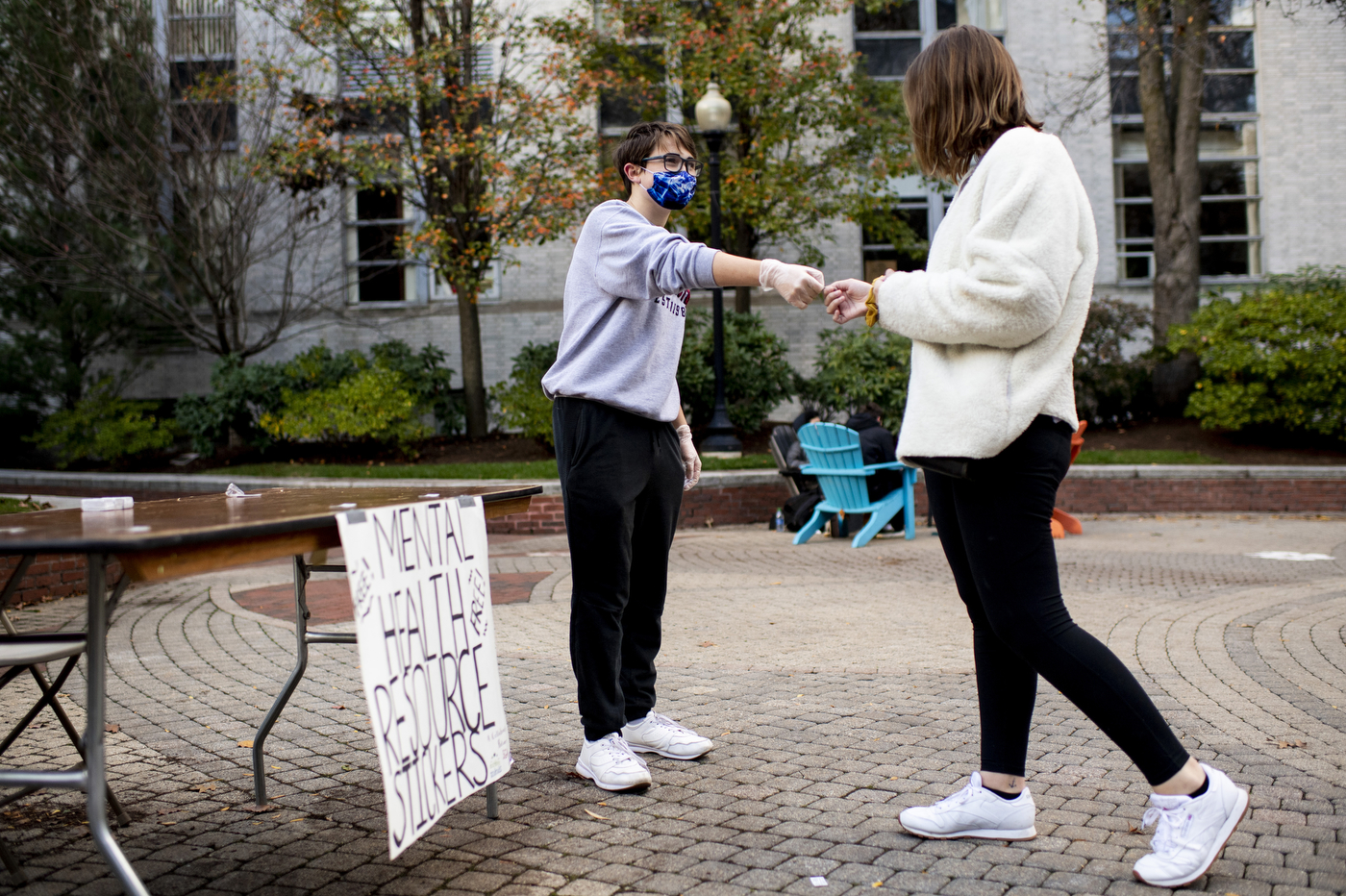
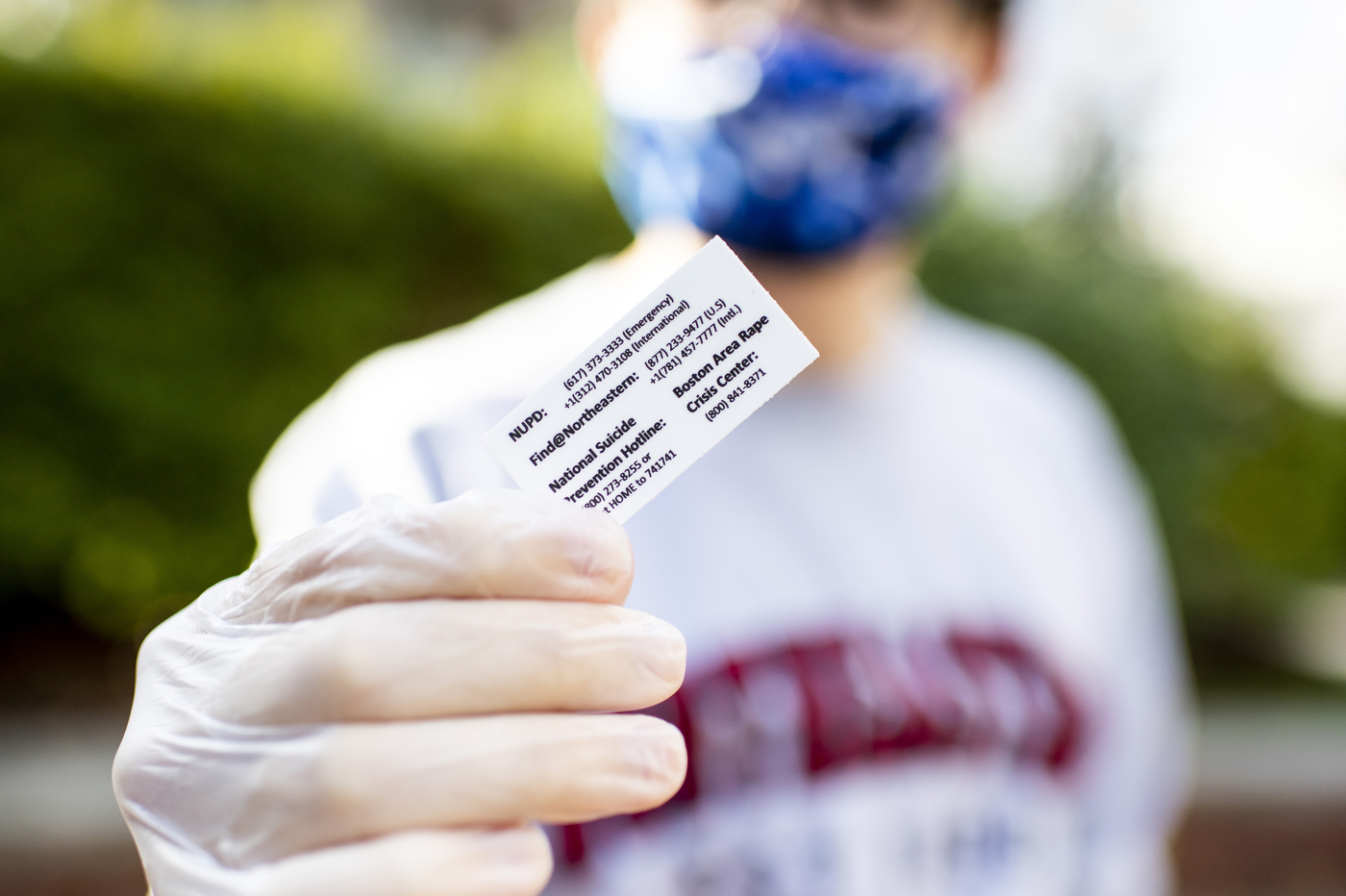
One of the first things she did was join the Northeastern chapter of Active Minds, a national nonprofit organization supporting mental health awareness and education for students. In partnership with the university’s Student Government Association, the group started a campaign last year to place information about mental health resources for incoming students on the back of Husky cards, beginning next spring.
Recognizing the importance of promoting wellness on campus as students are grappling with fear, anxiety, and stress during the COVID-19 pandemic, the organization accelerated the project by printing stickers with that information and distributing them to students on campus this fall. On top of that, Active Minds has compiled an online database of resources for students.
“The whole point of quarantining and the stay-at-home orders is isolation, and that can take a toll on students in terms of feelings of loneliness and being isolated from your support network,” says Sophie Horton, a third-year criminal justice and psychology major, and president of Active Minds. “A lot of students are struggling with those things, as well as depression. And if you have students who already have some of these conditions it just builds up and up until it gets to a point where they can no longer go on with their daily lives and function.”
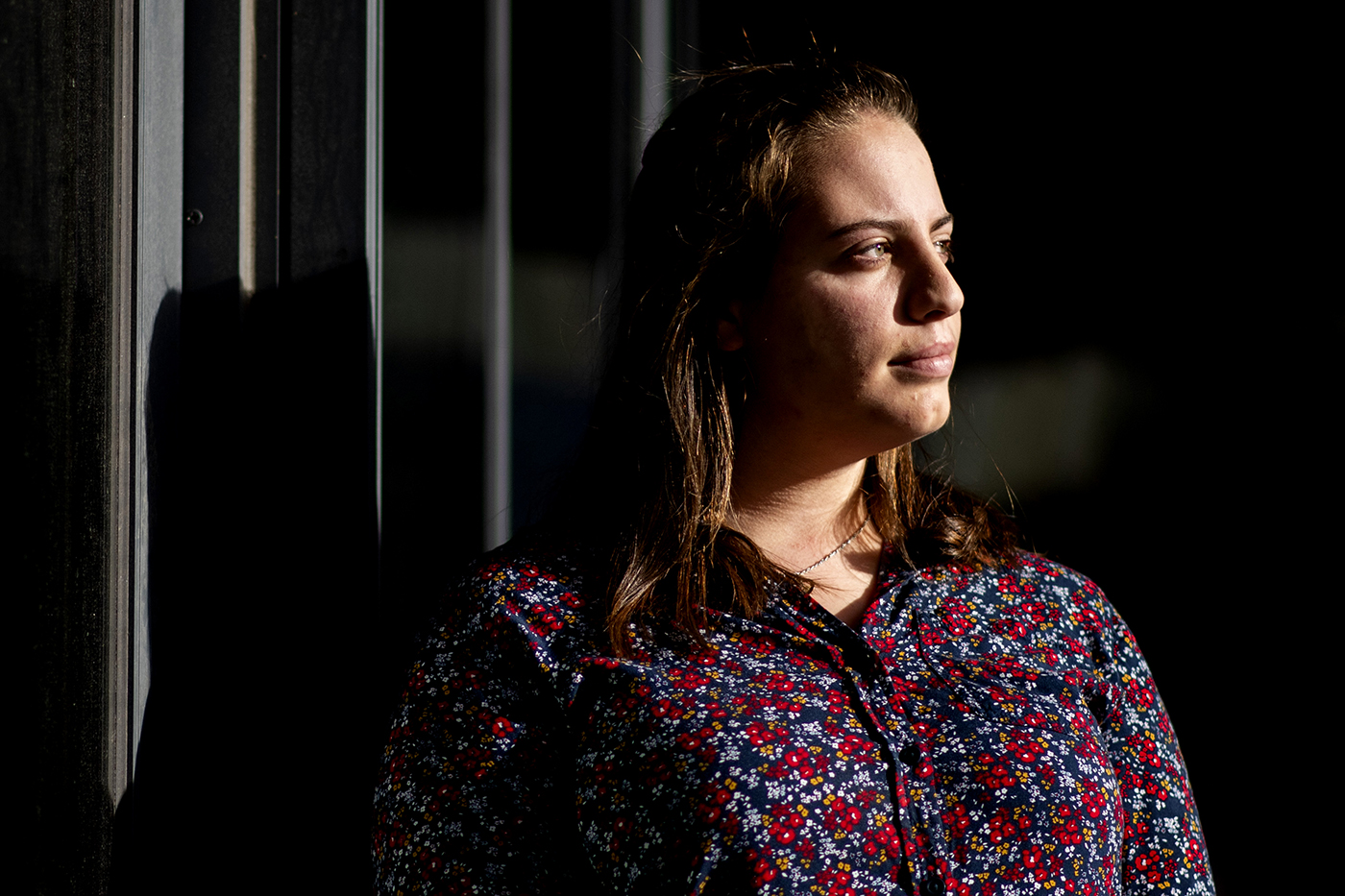
Sophie Horton, a third-year criminal justice and psychology major, and president of Active Minds. Photo by Matthew Modoono/Northeastern University
To manage stress, Horton says her peers are turning to or increasing their participation in activities such as exercise, mindfulness, and meditation. She has found solace in seeing a dialectical behavioral therapist, and receiving support from her father. Strong parental support can make a significant difference in a student’s mental well-being, she says.
“It’s about making sure that you are providing a strong link so that if they feel like they might need help, they can reach out to you and not have to feel so alone in that struggle,” Horton says.
Educators also play an important role in students’ well-being, says Kelly Moran, director of Coordinated Care and Health Promotions at University Health and Counseling Services. The group, which offers support, information, and response to mental and medical health concerns, partnered with Active Minds to create 5,000 mental health resource stickers.
“We don’t expect professors or academic advisors to be therapists, but we do expect them to be a trusted space,” she says. “And we can then begin to do the clinical work.”
University Health and Counseling Services launched a 24/7 mental health support program last year called Find@Northeastern to offer students free around-the-clock professional counseling support, video counseling with a licensed clinician, and an eight-module online program to help them learn new coping skills for stress and anxiety—regardless of where in the world they are located.
“One of the things that we were hearing from students was that crises don’t happen during business hours,” says Moran. “So Find is really an opportunity where they can get support 24 hours a day from wherever they are in the world. And that has been a real highlight of the work that we do here.”
Students may contact Find@Northeastern at any hour of the day by calling (877) 233-9477 (toll-free within the United States) or (781) 457-7777 (from outside the U.S.). Insurance isn’t required and patient confidentiality is assured.
Fullwood used Find@Northeatern to seek help for anxiety caused by the pandemic and social and political unrest.
“The resources really helped me focus on how to ground myself and be present within the moment and just not think too much about the future and the what-ifs and all the wild things outside of right now,” she says. “Like, my classes do matter, and the people I’m spending my time with do matter. I’m just focusing on those little things.”
This fall, University Health and Counseling Services expanded its student support groups to 11, each tailored to a segment of the student population (e.g. graduate students) or focused on an interest, such as art therapy or yoga for mental wellness. All of these groups have successfully transitioned to online amid the pandemic, says Moran.
“We see where there’s some gaps and we hear the feedback from students and are really trying to tailor it to what their needs are,” she says, adding that for some students, connecting with others who are passionate about the same topics can be a coping mechanism.
Many students are finding that connection by joining multiple clubs and organizations on campus, which is easier to do now that many of them hold their meetings online, says Horton. Her own organization, Active Minds, has seen an exponential increase in membership. Fullwood is one of those new members.
“If you’re able to connect with anyone, even if it is virtual, just spend time with those connections because they are meaningful,” she advises. “We will get through this. We can do it, I believe in us.”
Horton is heartened by the efforts the university has taken to make mental health resources available to students.
“As a university, it feels like we’re really turning a corner in terms of mental health care and mental health awareness on campus,” she says.
For media inquiries, please contact media@northeastern.edu.


